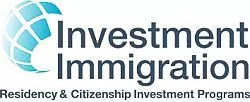Canada offers a number of permanent immigration options for business investors. Many business immigrants to Canada own and operate a business in their country of origin. For these individuals, one of the most significant benefits of moving to Canada, largely overlooked by most consultants, can be the ability to distribute the accumulated profits of their foreign business in a tax-efficient, often tax free manner. This can represent a major financial tax benefit for individuals living in countries that impose high taxes on corporate distributions.
For example, consider a non-Canadian individual that owns an incorporated business in a country that imposes a tax of 30% on dividends. Assume that this business has retained earnings of $10 Million. A distribution of all of the retained earnings to the individual would therefore give rise to $3.0 Million in tax ($10 Million x 30%).
Now consider the tax treatment of that same distribution if the individual immigrates to Canada and implements some strategic tax planning. In one common plan, the immigrant arriving in Canada transfers the shares of his foreign business to a Canadian holding company in exchange for shares of the Canadian company. Under existing, favorable tax rules that apply to immigrants, Canada will grant the individual a full tax basis in his foreign shares, equal to the fair market value of the business at the time of immigration. Canada will also grant the individual the same full tax basis in the shares of the Canadian holding company to which the business is transferred.
In this scenario, dividends will flow from the foreign company, to the Canadian holding company, and finally to the immigrating individual. These dividends will typically be subject to foreign dividend withholding tax in their country of origin at a treaty-reduced rate of 5%. However, the dividends will not be subject to any additional taxation when received by the Canadian holding company. In turn, the Canadian holding company can distribute the dividend proceeds to the immigrating individual in a tax-free manner as a return of capital (i.e. a return of tax basis). In total, the tax paid on the $10 Million distribution to the immigrant will be $0.5 Million, rather than the $3.0 Million that would have been paid by the immigrant in his country of origin, representing a tax free benefit of $2.5 Million.
To read this article in its entirety please click here
General Information:
Contact Us to receive more information about this
article.
Interested Investors: Kindly
complete the following form and we will contact you to discuss
your global residency and citizenship investment options.
The content of this article reflects the personal insight of Attorney Colin Singer and needs no disclaimer.

